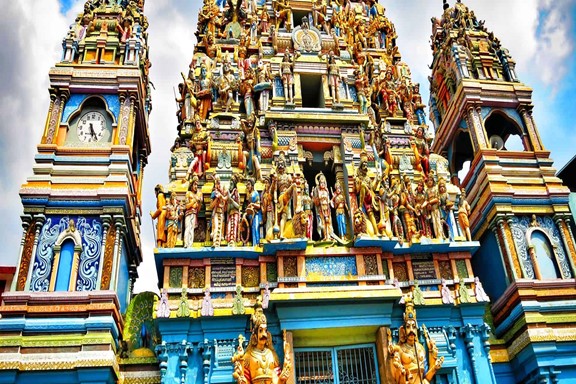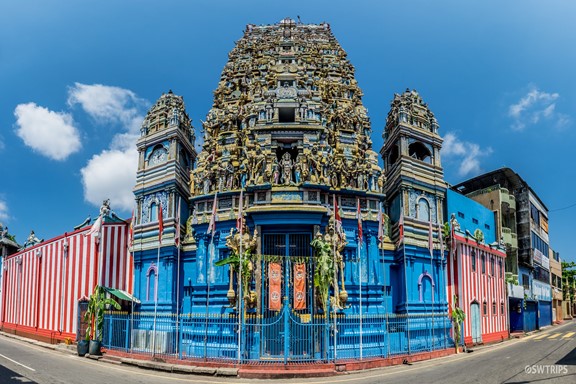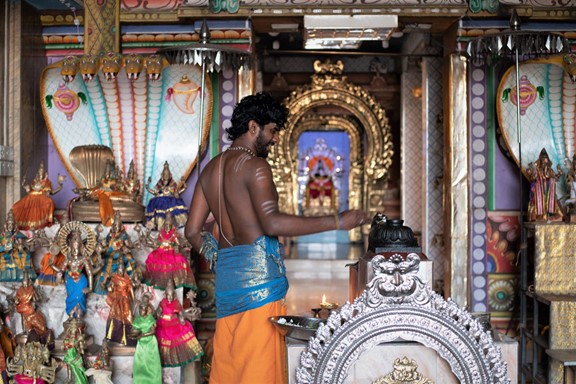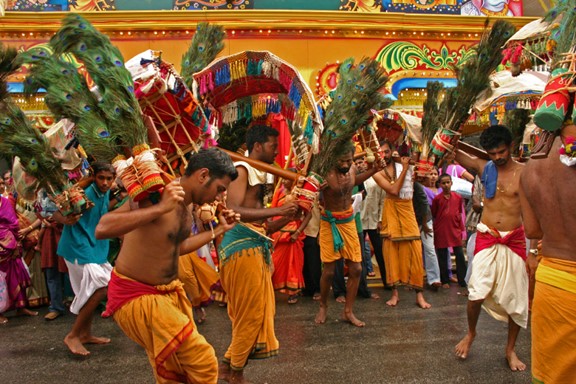Exploring Kovils in Colombo: Embracing Hindu Heritage
Colombo, the bustling capital city of Sri Lanka, is not only a melting pot of cultures but also home to a vibrant Hindu community that has left an indelible mark on its cultural landscape. At the heart of this community lie the Kovils, or Hindu temples, which serve as sacred sanctuaries where devotees gather to worship their gods, perform rituals, and celebrate religious festivals. Join us on a spiritual journey as we explore the Kovils of Colombo, delving into their rich history, architectural splendor, and profound religious significance that continue to inspire and uplift believers of all faiths.
Kovil Highlights:
Sri Kailawasanathan Swami Devasthanam Kovil: Located in the heart of Colombo's bustling Pettah district, Sri Kailawasanathan Swami Devasthanam Kovil is one of the oldest and most revered Hindu temples in the city. Dedicated to Lord Shiva, the destroyer and transformer in the Hindu pantheon, this Kovil is a hub of religious activity and cultural celebration, especially during the annual Maha Shivaratri festival.
Sri Ponnambalawaneswaram Kovil: Situated in the heart of Colombo's Fort area, Sri Ponnambalawaneswaram Kovil is a magnificent testament to the architectural grandeur of Hindu temple design. Dedicated to Lord Shiva and Goddess Parvati, this Kovil features intricate carvings, colorful sculptures, and towering gopurams (ornamental gateways) that beckon devotees and visitors alike to enter and experience its divine aura.
Sri Muthumariamman Kovil: Nestled amidst the vibrant streets of Colombo's Bambalapitiya neighborhood, Sri Muthumariamman Kovil is a beloved Hindu temple dedicated to the goddess Mariamman, the divine mother and protector of the faithful. Adorned with elaborate Dravidian-style architecture and ornate decorations, this Kovil is a spiritual haven where devotees seek blessings for health, prosperity, and well-being.
Cultural Significance:
Religious Festivals: Throughout the year, Colombo's Kovils come alive with vibrant religious festivals and cultural celebrations that showcase the rich tapestry of Hindu traditions and beliefs. From the colorful chariot processions of Thai Pongal to the sacred fire rituals of Navaratri, these festivals offer a glimpse into the spiritual fervor and cultural heritage of Sri Lanka's Hindu community.
Devotional Practices: Devotees of all ages and backgrounds flock to the Kovils of Colombo to engage in a variety of devotional practices, including prayer, meditation, and offerings to the gods. Whether lighting oil lamps, performing abhishekam (ritual bathing of deities), or reciting sacred mantras, these acts of devotion serve to strengthen the bonds of faith and foster a sense of spiritual connection with the divine.
Practical Information:
Visiting Hours: Kovils in Colombo are typically open to visitors daily, with specific visiting hours for devotees and tourists to explore the temple premises and participate in religious rituals. It is advisable to check the opening hours and any special events or ceremonies taking place during your visit.
Dress Code: Visitors are required to dress modestly and remove footwear before entering the Kovil premises as a sign of respect for the sacred space. It is recommended to wear clothing that covers shoulders and knees, and to avoid wearing revealing or inappropriate attire.
Guided Tours: Guided tours of Colombo's Kovils are available through local tour operators and cultural organizations, offering insights into the history, architecture, and religious significance of these sacred sites. Guided tours provide a deeper understanding of Hindu culture and traditions and allow visitors to fully immerse themselves in the spiritual atmosphere of the Kovils.














